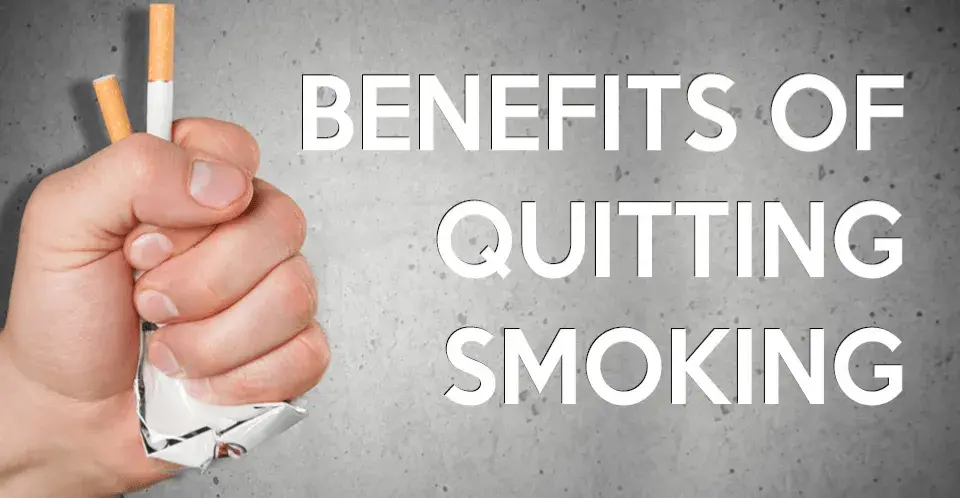Smoking has several adverse health consequences, including a higher risk of developing serious diseases such as cancer and heart problems. Smoking can also cause premature death. Quitting Smoking is a major step in improving one's health and reducing the risk of smoking-related diseases. However, quitting can be challenging as the body goes through a physical and emotional adjustment period. So, when quitting Smoking, what are the side effects? The side effects of quitting Smoking can range from mild to severe and can include symptoms such as nicotine withdrawal, weight gain, coughing, Frustration, headaches, etc. Even though quitting Smoking can be difficult, the benefits to your overall health are well worth it. It's important to be aware of these side effects and have the plan to manage them to increase the chances of successfully quitting Smoking. Read on to understand more things that you can expect when quitting Smoking.
What is Smoking?
The act of exhaling and inhaling the toxic smoke of incomplete combustion of organic material is known as Smoking. Smoking a wide range of plant materials, such as marijuana and hashish, is common, but the conduct is most frequently associated with tobacco, whether smoked in a cigar, cigarette, or pipe.
1. Cigarettes -
Tobacco covered in a paper roll. You can buy ready-made cigarettes or roll your own. You inhale smoke when you light a cigarette.
2. Cigars -
Tobacco covered in tobacco leaves or tobacco pulp paper.
3. Pipes -
Tobacco that does smoke in a pipe.
Also, Read How to Stop Diarrhea After Drinking Alcohol
When quitting Smoking what are the side effects?

For some, the adverse effects of giving up Smoking can be severe. When going through withdrawal, many people feel like they have the flu. This is because Smoking impacts every part of your body. So to the people who ask if I quit smoking what are the side effects, here is the list of things and effects that you can expect :
1. Strong nicotine cravings -
While smoking for several years, your body gets addicted to nicotine. Cravings peak between two and four weeks.
2. Tingling sensations in the hands and feet -
A tickling sensation in your feet and your hands may occur as your circulation improves.
3. Parched Mouth -
Smoking cigarettes is a frequent cause of parched mouth. As you adjust, the anxiety and stress connected with withdrawal can aggravate the situation.
4. Irritation, Frustration, and rage -
You're making a significant shift — your body and mind must adjust to losing something you've grown dependent on. This frequently results in irritability and anger.
5. Coughing and throat pain -
As your respiratory system begins to release the secretions and other debris caused by Smoking, you may experience a cough and sore throat.
6. Concentration issues -
At first, all of the adverse effects of giving up Smoking can be difficult to concentrate.
7. Depression and Anxiety -
Smokers are more likely to experience depression and anxiety; however, the cause is unknown. You could smoke to make yourself feel better. When you stop smoking, you may experience increased anxiety and depression. Depression is a severe illness.
8. Weight gain due to increased appetite -
When you stop smoking, you gain energy, which increases your appetite. Certain people also eat more just because they substitute food for cigarettes to avoid the "hand to mouth" habit of Smoking. Both result in weight gain.
9. Constipation -
Nicotine has an impact on the small intestine and colon. So when you try to quit Smoking, your body will become constipated.
10. Sleeping Trouble -
When you begin to quit Smoking, you may experience some difficulty sleeping. This will improve, but if it is upsetting, speak with your healthcare professional to receive assistance. Exhaustion from lack of sleep might make quitting more difficult.
Also Read: Alcohol & Smoking During Pregnancy: Is It Safe?
What are the Benefits of Quitting Smoking?

So to the people who are concerned if I quit Smoking, what are the side effects? Should also know the benefits of quitting Smoking. :
1. Improved taste and odor -
Tobacco use harms nerve endings in the mouth and nose, blunting your sensations of smell and taste. Within 2 days of quitting, nerve endings start to grow, and your sensation of smell and taste improves.
2. Clean Teeth and Mouth -
Tobacco use discolors your tooth enamel, leads to bad breath, and raises your risk of bacterial diseases. You'll notice a variation in your mouth within a week after quitting.
3. Improved blood circulation -
Your blood circulation improves within 3 to 12 weeks when you quit smoking. This makes physical activity much easier and reduces your risk of a heart attack.
4. More strength -
Improved oxygen in your body will give you more energy and enhanced breathing and physical activity.
5. Cancer risk is reduced -
It may take some time after you quit, but you'll reduce your risk of types of cancer like:
- Lung cancer
- Esophagus cancer
- Kidney Cancer
- Bladder cancer
- Pancreas Cancer
- Liver cancer
If you are looking for the best medical oncologist in Hyderabad. Do not get delayed, the right treatment at the right time is necessary.
6. An immune system booster -
Giving up smoking improves circulation, oxygen levels, and inflammation, all of which boost your immune system and make it easier to fight colds and other illnesses.
7. Enhanced sex life -
Smoking can harm your sexual life. It raises the chances of erectile disorder in men while decreasing genital lube and orgasm frequency in women.
8. Breaking the cycle of addiction -
The several tobacco effectors in your nervous system will return to normal within one month of trying to quit, ending the cycle of addictive behavior.
What happens when you start smoking again?
If you have any remaining cigarettes after quitting Smoking, don't use that to justify Smoking again. Take yourself out of the situation. Take a walk, take a deep breath, or sip water, and consider whether you want to smoke again. Avoid wasting energy on self-blame. Instead, see the cigarette as a warning that you need to adjust your quitting plan. Don't give up if you've tried to quit smoking multiple times and haven't succeeded. It is usual for someone to try to quit smoking several times before finally giving up.
Also, Read Better Breathing, Less Smoking
What can I do if I still have nicotine cravings after quitting?
Those who use nicotine products become accustomed to a specific nicotine level in their bodies. When you stop smoking, your body develops cravings for nicotine. This can happen even if the body is no longer dependent on nicotine. In addition to this physical want, you may have an emotional craving to smoke a tobacco product when you observe others smoking or are in the presence of other triggers. When you experience cravings, your mood may shift, and your heart rate and pressure may rise. The desire to smoke will pass. You may experience cravings within a couple of hours after your last cigarette use, which may be frequent in the following days or weeks. The cravings will become more distant as time passes. However, you may experience moderate cravings for months or years after quitting.
Takeaway
If you're ready to quit smoking, there are numerous options for getting started. It's not an easy path, but with the correct advice and assistance, it's becoming easier to go by the day. Always keep in mind that Quitting Smoking can bring both benefits and challenges. While quitting Smoking has the potential to greatly improve one's health and well-being, it can also result in a range of side effects such as nicotine withdrawal, weight gain, coughing, chest tightness, insomnia, changes in appetite, headaches, and increased stress levels. It is important to be aware of these potential side effects and have a plan to manage them. Despite the challenges, quitting Smoking is a worthwhile goal that can lead to a healthier and happier life.

Reviewed by







